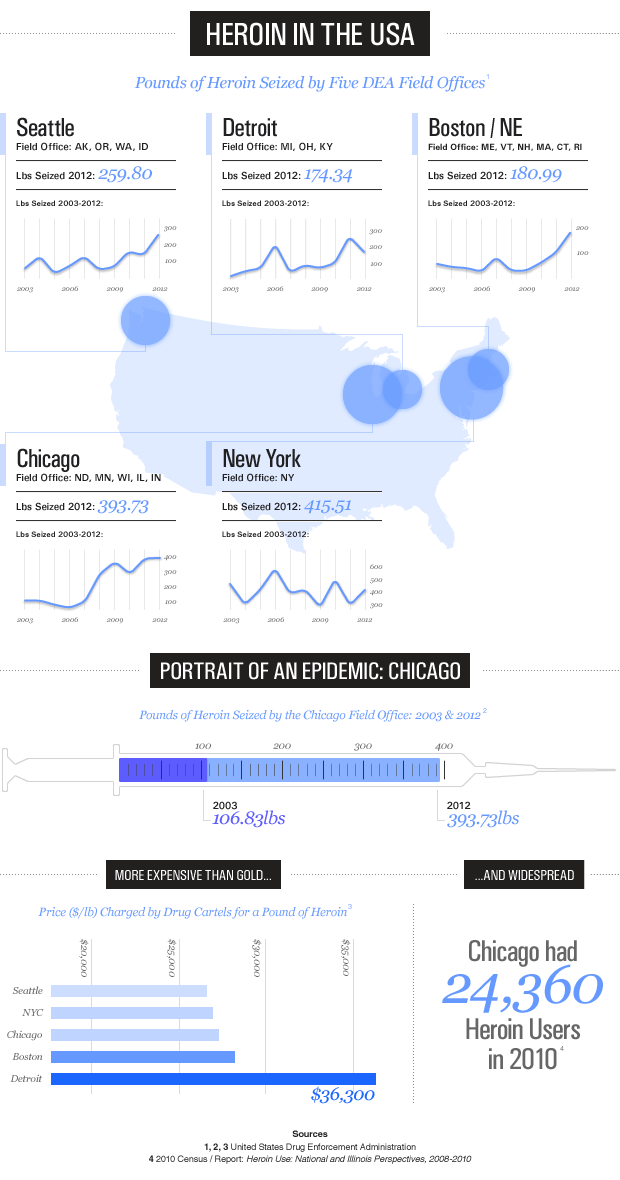Heroin: A constant war on a killer commodity
In the United States, the Drug Enforcement Administration (DEA) has a force of over 5,000 special agents and a budget of over $2 billion. The agency's mission is to enforce the controlled substances laws and bring those who break the law to justice. During their missions, the DEA seizes narcotics. The seizure of the drugs removes them from the street, while also removing dollars from gangs' coffers.
Drugs are a lucrative business. As with any business, it is tethered to the laws of economics. Drug dealers and traffickers operate under their own set of economic principles. They have a steady stream of addicted clientele. Just as with many businesses, drug dealing has steep overhead and the opportunity for hefty profit margins.
In Chicago, dealers have identified a new revenue stream; deep pockets from the suburbs surrounding the city. Affluent middle-class teenagers and adults are driving to the city to buy drugs, causing a spike in heroin overdoses, emergency room and treatment admissions. Fatal heroin overdoses have increased dramatically in Chicago's suburbs. In three counties alone, it's increased over 200 percent between 2008 and 2012. The coroner of one county calls heroin abuse, an epidemic.
